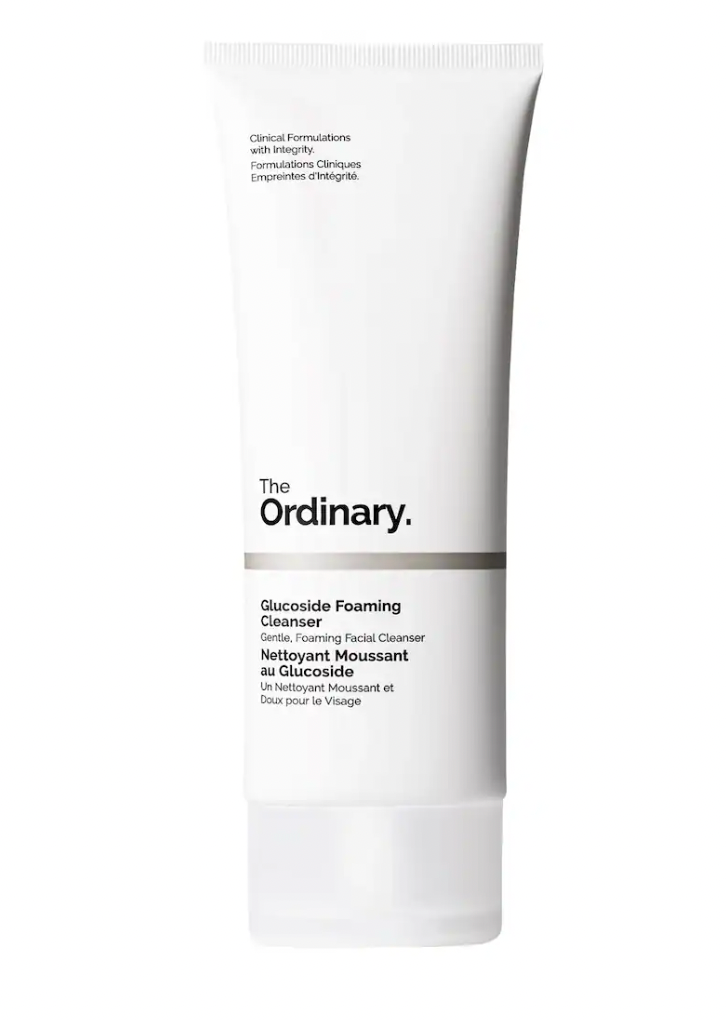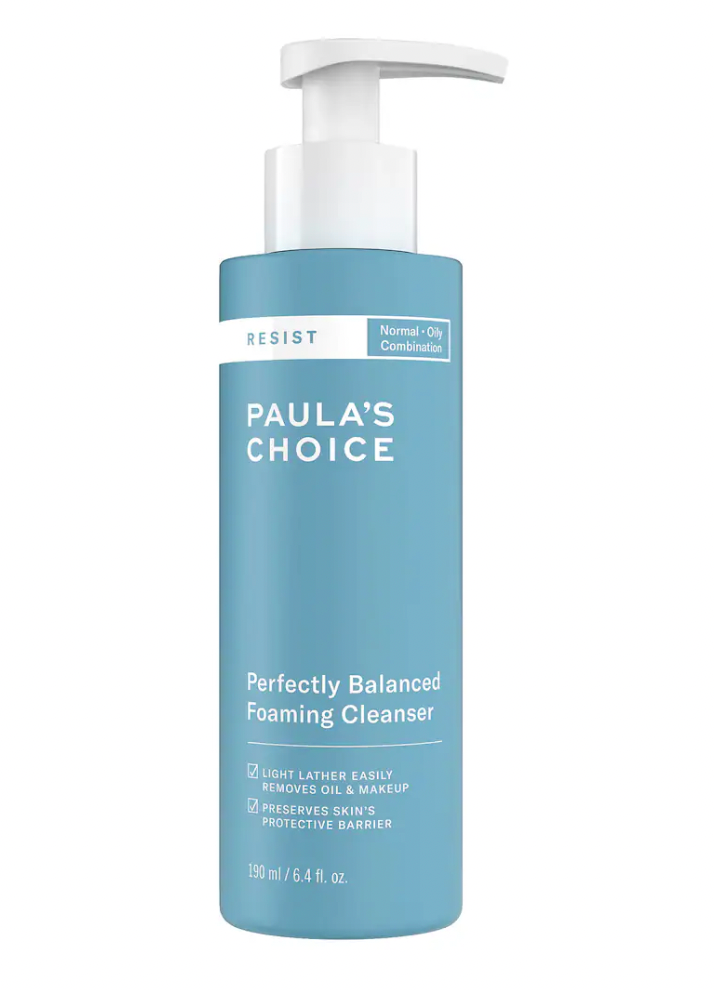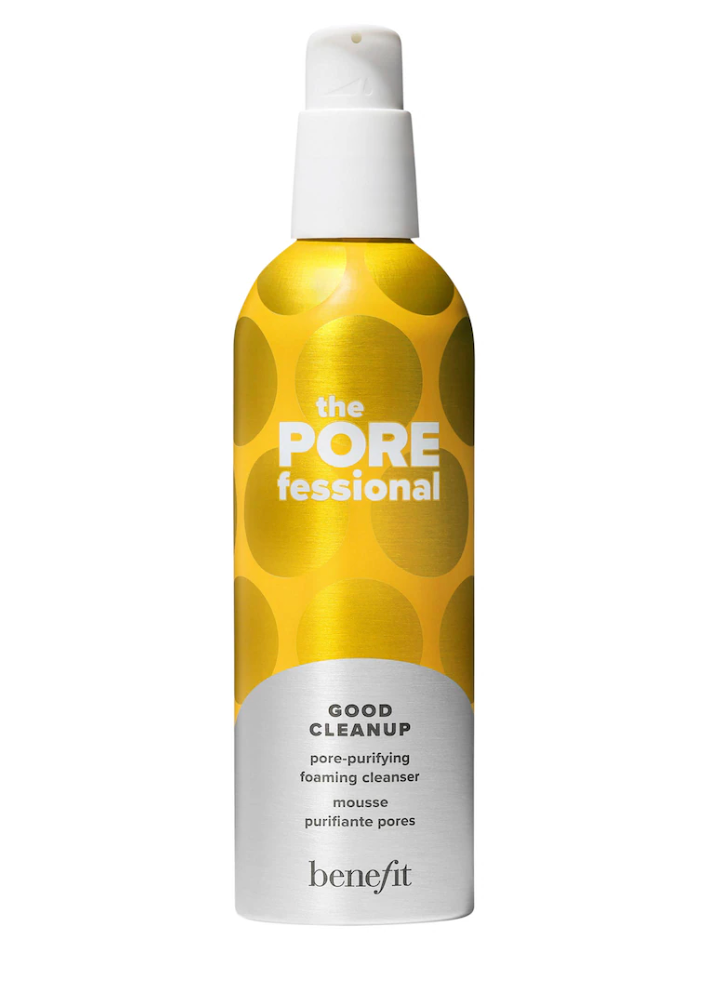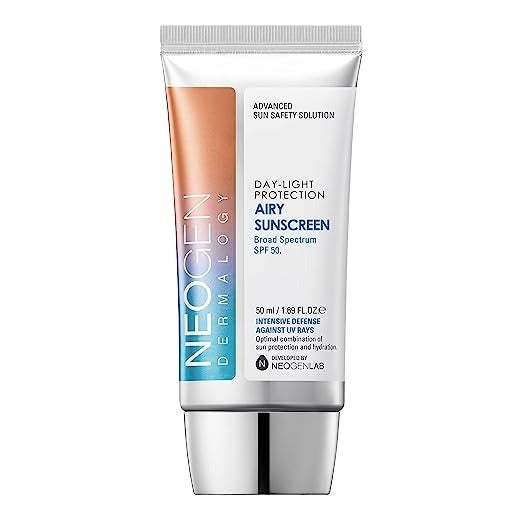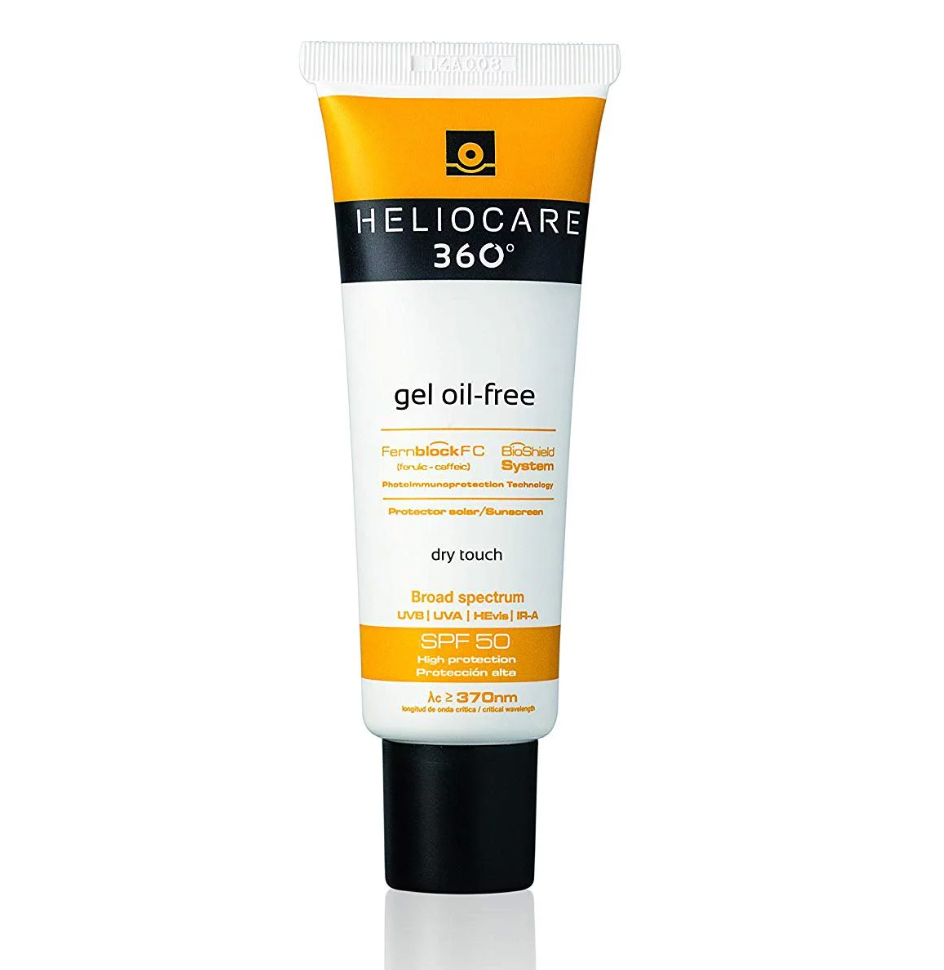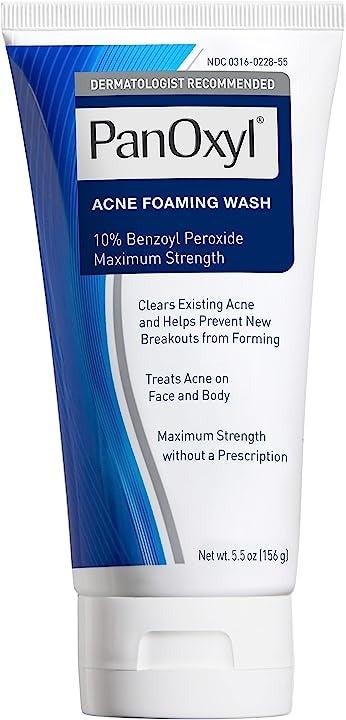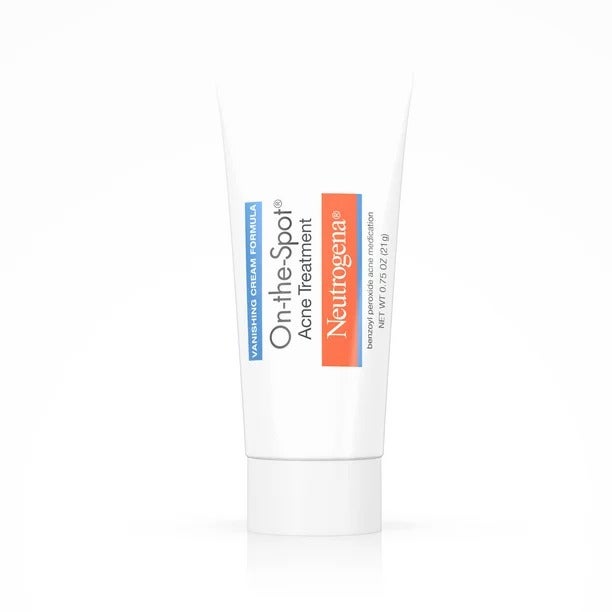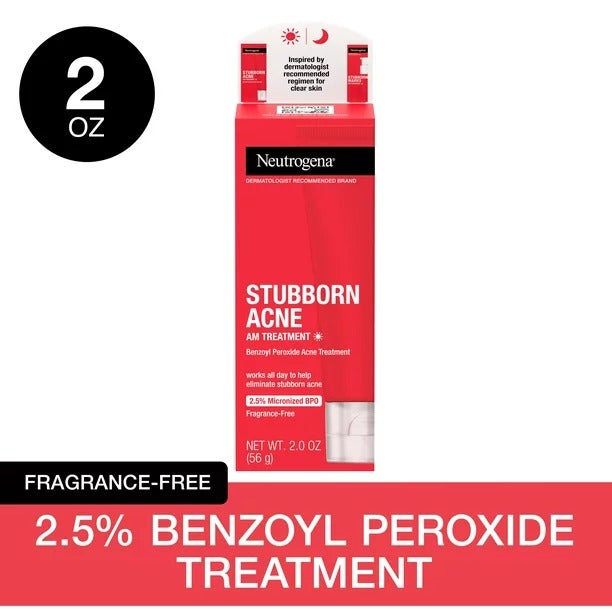A Dermatologist Just Set Me Straight On These 9 Acne Myths
Photographed by Rochelle Brock.
Welcome to Acne Files, a month-long series where we get real about whiteheads, blackheads, cysts, and every bump or blemish in between. From skin-soothing products R29 editors swear by to exclusive deals on the most breakout-friendly beauty brands, we’re kissing the concept of “bad skin” goodbye and exploring why acne goes so much further than skin deep.
Acne is the most common skin condition in the United States, affecting approximately 50 million people every year, yet its various causes, manifestations, and treatment methods continue to baffle so many. From painful cysts to pesky whiteheads, acne can look different on everyone — and its list of triggers is both long and varied, with genetics, hormones, and using the wrong skin care among the reasons why you might experience a sudden breakout. For many of the people who experience it, acne is a chronic condition that can have a significant impact on mental health.
AdvertisementADVERTISEMENT
To make matters worse, there is so much misinformation out there, it’s hard to separate fact from fiction. Social media is at least partly guilty of fueling misconceptions surrounding acne. TikTok, for example, is awash with recommendations of “acne-fighting superfoods” and videos detailing the supposed benefits of enlisting everything from toothpaste to turmeric as a spot treatment. It may seem harmless, but these enduring myths pave the way for other, more harmful misbeliefs.
Ahead, we asked Dr. Anjali Mahto, dermatologist and British Skin Foundation spokesperson, who has first-hand experience in navigating the complex and emotional skin condition, to put some of the most unhelpful acne myths to bed.
Myth: Having acne means you have bad hygiene.
Our skin is home to millions of bacteria, including C. (Cutibacterium) acnes. Though it’s a totally normal part of everyone’s skin microbiome, acne-prone individuals have specific strains of C. acnes that can cause inflammation on the skin. However, Dr. Mahto drives home that having acne does not mean you have bad hygiene or that your skin is dirty. “This is simply not true,” says Dr. Mahto. “In fact, data shows that those who have acne tend to over-cleanse their skin to reduce oil production.” The pathology of acne is more to do with factors such as underlying oil glands and hormones, explains Dr. Mahto. “It has nothing to do with personal hygiene.” That said, Dr. Mahto recommends washing your face twice a day — morning and evening — with a cleanser suited to your skin type. She suggests a foaming cleanser for those with oily and acne-prone skin.
AdvertisementADVERTISEMENT
Myth: Everyone grows out of acne.
Acne is commonly associated with adolescence, as hormonal changes around puberty can trigger the skin condition. However, as the American Academy of Dermatology Association reports, acne can occur at any stage of life and continue into one’s 30s, 40s and 50s. Acne is more likely to persist into adulthood for women than men, says Dr. Mahto. “For men, there are fewer complex hormonal factors at play,” she explains. About 50% of women in their 20s and 25% of women in their 40s experience hormonal acne. Dr. Mahto adds that acne can be affected by many different hormonal stages in life, such as pregnancy and menopause. Hormonal replacement therapy (HRT) used to relieve symptoms of menopause may further exacerbate acne during that time.
Myth: Your diet is causing your acne.
Dr. Mahto understands this school of thought: “Diet and skin care are two big variables that people try to control before they seek professional help,” she says. However, she emphasizes that skin conditions such as acne are multifaceted and, despite decades of research, there is still no clear answer as to whether diet has any impact on acne at all. For instance, the commonly cited link between acne and dairy is weak. “The data is not strong enough,” says Dr. Mahto. “There probably are a select few people who are sensitive to dairy, but for the vast majority of people with acne [cutting out dairy] doesn’t make a blind bit of difference.”
AdvertisementADVERTISEMENT
That said, there is emerging evidence to suggest sugary foods that have a high glycemic index (GI) may play a role in acne. That doesn’t mean you have to cut sugary foods out of your diet entirely, says Dr. Mahto; rather, consider limiting your intake. In a similar vein, Dr. Mahto explains that, while fatty food in and of itself is unlikely to cause acne, there is one factor to be wary of. “The problem with these foods is that they are often processed and might have a high glycemic index,” she says. “It goes back more to the high GI rather than the notion that if you eat fat you’ll create fat, and that will clog your pores and create more oil.”
Myth: You have to dry your skin out to get rid of acne.
Because some forms of acne can be caused by buildup of oil within the pores, you’d be forgiven for thinking that one way to get rid of breakouts is to zap your skin of excess oil and moisture — but you might be doing more harm than good. “Both oil and water are important for the integrity of the skin barrier,” says Dr. Mahto. The skin barrier is essentially the outermost layer of skin, which protects against infection and environmental aggressors. “Acne-prone skin absolutely does still need moisturizer — as well as sunscreen — in the same way that non acne-prone skin would,” says Dr. Mahto. “A lot of people with acne-prone skin tend to use treatments which deliberately dry skin out, such as retinoids or exfoliating acids. If you are using them, you should moisturize.”
AdvertisementADVERTISEMENT
Dr. Mahto favors lightweight gel texture featuring ingredients like hydrating hyaluronic acid, which delivers moisture without clogging the skin, and suggests avoiding thicker textures and occlusive ingredients like shea butter, vitamin E, and cocoa butter.
Myth: Wearing sunscreen and makeup makes acne worse.
“A lot of sunscreens are made to sit on the surface of the skin, and they can be a little bit occlusive,” says Dr. Mahto. “We also tend to use sunscreen more in hot weather, so heat and sweat, plus an occlusive layer on the skin, aren’t going to be great for acne. But it’s important to wear sunscreen to shield your skin from UVA rays [associated with melanoma skin cancer and premature aging] and UVB [responsible for sunburn].”
Therein lies the catch. However, there are a handful of ways around sunscreen-induced breakouts. “Firstly, don’t layer moisturizer and sunscreen. Most sunscreens come in a moisturizing base anyway, so you probably don’t need two layers on your skin. Also opt for lighter formulas or products which read “matte'' or “oil-free” on the label. “Rather than greasy creams, you’ll want to go for a gel-based formula instead,” says Dr. Mahto. She recommends Neogen Dermology Airy Sunscreen Broad Spectrum SPF 50 and Heliocare 360 Gel Oil-free SPF 50 Broad-Spectrum Sunscreen. Also look out for a sunscreen with a non-comedogenic label, which means it’s less likely to clog your pores.
You'll likely want to follow the same rule of thumb when it comes to makeup. Dr. Mahto suggests opting for mattifying products with a gel rather than cream texture, as well as a non-comedogenic label. She also emphasizes that makeup is a personal choice and that we shouldn’t be shaming people with acne for wearing it. “There is data that shows that those with acne-prone skin have increased confidence by wearing makeup,” says Dr. Mahto, “so it’s important not to create a cycle of blame.”
AdvertisementADVERTISEMENT
Dr. Mahto says that long as you take your makeup off properly at the end of the day, wearing it shouldn’t be an issue. “I always advise double cleansing at the end of the day, especially if you’re wearing makeup and sunscreen. It’s not necessary at all in the morning, however, it’s the only way to make sure you’re removing everything properly at night.”
Myth: Acne doesn’t run in families.
The National Health Service (NHS) says that acne is a genetic skin condition. “This means that if you have a first-degree family member with acne [such as a parent] it is much more likely that you will also experience the condition,” says Dr. Mahto. “Part of the reason is that you inherit the number, size, and activity of your oil glands from your parents,” she adds. “We are born with these oil glands but we have no hormonal influence until we hit puberty. The minute you get to your teenage years, the glands that you have in number wake up as a result of the hormones that kick in.” In other words, acne is almost pre-programmed for many, says Dr. Mahto.
Myth: You can treat acne with skin care.
This is only partly true. As the first line of treatment, Dr. Mahto suggests trying over-the-counter products with ingredients such as benzoyl peroxide (which destroys acne-causing bacteria), salicylic acid (an exfoliant that helps unclog pores), or retinoids (which reduce blocked pores). “If you have mild to moderate acne, there are clinic-based treatments you can do, such as chemical peels, BroadBand Light therapy (BBL), or laser therapies,” says Dr. Mahto. “However, they aren’t great for cystic acne, so it’s important to diagnose the severity of your acne to work out what the best treatment might be.”
AdvertisementADVERTISEMENT
“If none of this has worked, your next option could be oral antibiotics or, for women, the combined oral contraceptive pill,” says Dr. Mahto. “You could also see a specialist for something like spironolactone [a diuretic drug that helps treat hormonal acne in women] or Accutane,” says Dr. Mahto. She suggests seeking help from your primary care doctor or a board-certified dermatologist if: you have not seen an improvement after four to six weeks of using over the counter products; you are getting extensive acne on multiple body sites such as your face, back, shoulders, and chest; you are getting acne which is leaving marks or scarring; or your acne is affecting your mental health.
Myth: Antibiotics get rid of acne for good.
In the US, the most commonly-prescribed oral antibiotics for acne are minocycline and doxycycline, which kill acne-causing bacteria and reduce skin inflammation. Research shows that both antibiotics have a history of both efficacy and safety. Despite this, antibiotics divide opinion among doctors and dermatologists, particularly as it is recommended they are taken for around three months at a time and no longer.
“There is a concern about long term use and gut health, as well as resistance,” says Dr. Mahto. Sure enough, a 2023 study found that using broad-spectrum antibiotics for acne treatment for long periods of time can result in antibiotic resistance. Antibiotics were also shown to have a detrimental impact on the gastrointestinal microbiome. “There is also a risk of relapse,” adds Dr. Mahto. “As soon as you stop [taking antibiotics], acne tends to come back — and we can’t have people on antibiotics indefinitely. It’s just not good for you.” If this is the case, ask your primary care doctor or dermatologist to talk you through your options for acne medication.
AdvertisementADVERTISEMENT
Myth: Taking the contraceptive pill will treat your acne.
This depends on which contraceptive pill, and it varies greatly from person to person. “The combined pill [an oral contraceptive which contains artificial versions of the female hormones progesterone and estrogen] is a good treatment for acne,” says Dr. Mahto. It works by decreasing androgens, a group of hormones that includes the male hormone testosterone, which can result in acne. “However, the progesterone-only pill [POP or mini pill] can make acne-prone skin worse,” explains Dr. Mahto. “It makes your oil glands more plump, and we know that acne can be a side effect of that.” These oil glands are attached to hair follicles, and when they become blocked they form a breakout.
There is some speculation that when you stop taking the combined pill, your acne will come back. “It won’t happen to everyone,” says Dr. Mahto, “but if you are acne-prone to begin with, it’s much more likely that you’ll experience acne again when you stop taking contraception.” If you’re concerned, see your primary care doctor or a board-certified dermatologist for advice.
At Refinery29, we’re here to help you navigate this overwhelming world of stuff. All of our market picks are independently selected and curated by the editorial team. All product details reflect the price and availability at the time of publication. If you buy or click on something we link to on our site, Refinery29 may earn commission.
AdvertisementADVERTISEMENT








